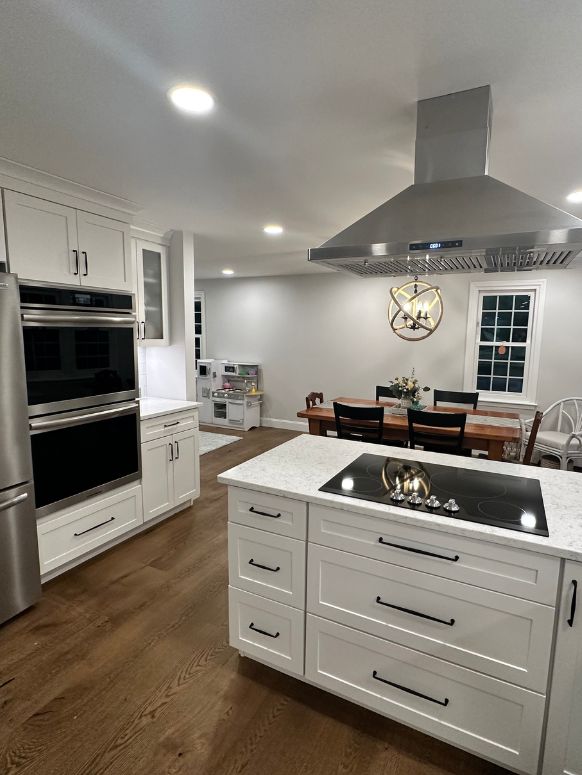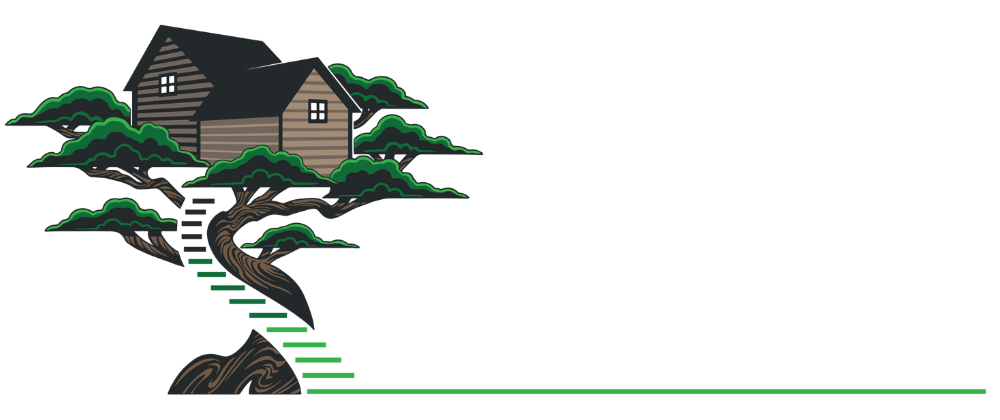From Concept
to Creation
Home and Business Remodeling & Design Showroom in Leicester, MA
Home and Business Remodeling & Design Showroom in Leicester, MA
What We Do
Kitchens
Bathrooms
Flooring
Lighting
One-Stop Solution by Expert Remodeling Contractors in Leicester, MA
1. Design
The design process seamlessly integrates innovative aesthetics with functional practicality to create personalized and captivating living spaces.
2. Shop
Shopping involves selecting high-quality, stylish materials and fixtures that perfectly complement the custom design vision.
3. Deliver
Delivery is meticulously coordinated to ensure all materials and fixtures arrive on schedule and in perfect condition.
4. Install
The installation process is carried out with precision and expertise to ensure a flawless finish and complete client satisfaction.
Why Choose Our Remodeling Contractors in Leicester, MA?
Choose Bonsai for exceptional craftsmanship, personalized designs, and unparalleled customer service in transforming your living spaces.
Trusted Team of Professionals
Our team of professionals brings years of expertise, dedication, and attention to detail to every project.
Expert Installers Available
Our installers are available to ensure precise, high-quality installations for every aspect of your project.
Contractors Welcome
Contractors are welcome to shop at Bonsai Kitchen, Bath & Flooring, leveraging their extensive selection and expert services for their own projects.
Everything You Need In One Location
Enjoy the convenience of finding everything you need in one place, from kitchen and bathroom essentials to flooring and lighting options.

Explore Our Blog
Best Lighting Fixtures, MA Homeowners Are Installing in 2026
Lighting trends are evolving quickly, and in 2026, Lighting Fixtures, MA homeowners are choosing are all about style, efficiency, and smarter functionality. From warm layered lighting in kitchens to sleek bathroom vanities, the right fixture is no longer just...
Flooring Installation, MA: What Homeowners Should Know Before Hiring a Contractor
Hiring the right contractor for Flooring Installation, MA homeowners can trust, isn’t just about price - it’s about experience, materials, preparation, and long-term value. Flooring is one of the most noticeable features in your home, and a poor installation can lead...
How to Choose the Right Bathroom Shower Enclosure in Massachusetts
Choosing the perfect bathroom shower enclosure in Massachusetts can feel overwhelming with so many styles, materials, and installation options. At Bonsai Kitchen Bath and Flooring, we understand that your bathroom is more than just a functional space - it’s a place to...
Choosing the Perfect Bathroom Floor Tiles for Your MA Home
Selecting the right bathroom floor tiles in MA can completely transform your space. Whether you’re updating an old bathroom or designing a new one, the right tiles balance style, functionality, and durability. At Bonsai Kitchen Bath and Flooring, we help Massachusetts...
Bathroom Vanity With Sink in MA: Complete Buyer’s Guide for Homeowners
Choosing the right bathroom vanity with sink in MA is one of the most important decisions homeowners make during a bathroom upgrade or remodel. A vanity isn’t just a design element - it affects storage, daily comfort, plumbing layout, and even your home’s resale...
How to Choose the Perfect Bathroom Lighting Fixture in MA
Choosing the right bathroom lighting fixture in MA can completely transform your space. The right lighting not only brightens your bathroom but also enhances its style, functionality, and comfort. At Bonsai Kitchen Bath and Flooring, we specialize in providing and...
Why Professional Bathroom Layout Design in MA Makes a Big Difference
A bathroom remodel isn’t just about choosing new tile or fixtures. The real success of the project starts with thoughtful bathroom layout design in MA - how the space is planned, how it flows, and how it functions every day. When the layout is done right, even a small...
Common Mistakes to Avoid During Kitchen Floor Installation, MA
Kitchen floor installation is one of the most impactful upgrades you can make to your home - but it’s also one where small mistakes can lead to big regrets. As a company that handles kitchen floor installation in MA every day, we’ve seen how rushed decisions, poor...
How to select the Ideal Kitchen Cabinetry in Leicester, MA
Choosing the perfect kitchen cabinetry in Leicester, MA is more than just picking a style you like - it’s about combining functionality, durability, and design that reflects your home and lifestyle. At Bonsai Kitchen Bath and Flooring, we specialize in guiding...
How Dover Woods Cabinets, MA, Transform Your Kitchen
A kitchen remodel is more than swapping out old materials for new ones - it’s about creating a space that feels warm, functional, and welcoming every single day. Dover Woods Cabinets, MA offers that blend of craftsmanship and character that instantly elevates the...
TESTIMONIALS
“I have an older home and was looking to retain a vintage look for a bathroom remodel. Kristin understood immediately what I was trying to accomplish, and she and Jason came up with a beautiful design that maintained some special features. The look and quality of the finished room is outstanding. I’m very happy with my new bathroom!”
Susan W.
Showroom Location
803 S Main St.
Leicester, MA 01524










